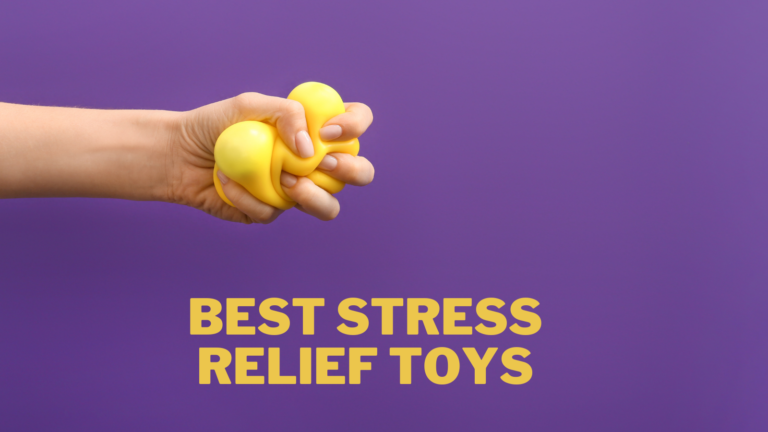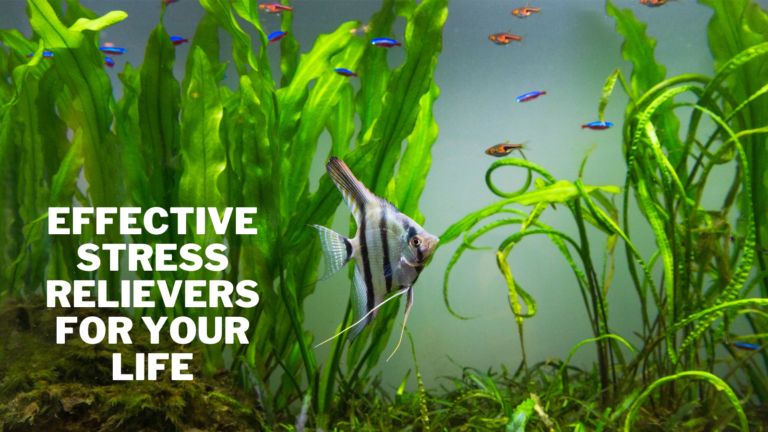Best Stress Relief Activities For College Students
Best Stress Relief Activities For College Students
College can be an exciting time filled with new experiences and opportunities for personal and academic growth.
However, it can also be a period of high stress and anxiety for many students as they navigate the demands of coursework, extracurricular activities, and social pressures.
To maintain mental and emotional well-being, college students must find ways to manage stress and practice self-care. This blog will explore some effective stress-relief activities for college students.
Importance Of Stress Relief Activities For College Students
College can be a time of excitement, exploration, and growth, but it can also be a time of stress and pressure.
Many students juggle a full course load, extracurricular activities, work, and social obligations, which can lead to feeling overwhelmed and burnt out. This is why stress relief activities are essential for college students.
One of the primary reasons stress relief activities are important is that they help to reduce stress levels.
When students engage in stress relief activities, such as exercising, meditating, or practicing deep breathing, they can lower cortisol levels.
Cortisol is a hormone released during stress and can cause anxiety and tension. Lowering cortisol levels can help students feel more relaxed, calm, and better able to focus on their tasks.
Stress relief activities also have significant physical and mental health benefits. Chronic stress can lead to various physical symptoms, including headaches, muscle tension, and digestive problems.
It can also contribute to developing mental health issues such as anxiety and depression. Engaging in stress relief activities such as yoga, running, or meditation can help to alleviate these symptoms and promote overall well-being.
In addition to the physical and mental health benefits, stress relief activities can also enhance academic performance.
When students are stressed, their ability to concentrate and learn is compromised. Students can improve their focus, attention, and cognitive function by engaging in stress relief activities, leading to better academic performance.
Overall, the importance of stress relief activities for college students cannot be overstated. Incorporating activities such as exercise, mindfulness, and socializing into their daily routines can help students manage their stress levels, improve their physical and mental health, and enhance their academic performance.
Students must prioritize self-care and make time for stress-relief activities to ensure they can thrive during college.
Stress Relief Activities For College Students
1. Exercise
Regular exercise is among college students' most effective stress-relief activities. Physical activity helps release endorphins, natural feel-good chemicals that improve mood and reduce stress.
In addition, exercise can help improve cardiovascular health, boost immunity, and increase energy levels, contributing to better overall well-being.
There are many ways for college students to incorporate exercise into their daily routines. Joining a sports team or participating in group fitness classes can provide a sense of community and accountability and the opportunity to socialize and make new friends.
Going for a jog or a brisk walk outdoors can also give a change of scenery and fresh air, which can be especially helpful during times of high stress.
Strength training and weightlifting can also be effective stress-relief activities. Lifting weights can help build muscle, improve posture, and increase confidence, all of which can contribute to better mental health.
Yoga and other mind-body practices, such as Pilates and tai chi, can help students relax and reduce tension in the body through breathing exercises and stretching.

2. Mindfulness And Meditation
Mindfulness and meditation are powerful stress relief techniques that help college students manage stress levels and promote overall well-being.
Mindfulness involves being fully present at the moment and focusing on the current experience without judgment or distraction.
Conversely, meditation involves deliberately focusing attention on a specific object, thought, or activity.
Practicing mindfulness and meditation can help students reduce anxiety and stress by calming the mind and focusing on the present moment. According to research, regular meditation can reduce cortisol levels, a hormone linked to stress.
Additionally, mindfulness has been shown to improve overall mental health and well-being by reducing symptoms of depression and anxiety. Meditation practices can take many forms, including guided, silent, and mantra meditation.
Guided meditations can be particularly helpful for beginners, providing step-by-step instructions for focusing the mind and relaxing the body.
Mantra meditation involves repeating a specific phrase or word to focus the mind and quiet its chatter.
3. Creative Expression
Creative expression can be a highly effective stress-relief activity for college students. Engaging in creative activities such as painting, drawing, writing, or music can provide a sense of release and self-expression that can alleviate stress.
By focusing on the creative process, students can shift their attention away from academic and personal life pressures and engage in an activity that brings joy and fulfillment.
Creative expression can also be a form of self-care, allowing students to prioritize their needs and take time for themselves.
Students can improve their mental health and well-being by reducing stress and promoting relaxation by engaging in creative activities.
For example, participating in a writing or poetry group can provide a supportive environment where students can share their work and receive feedback from others.
Attending a music concert or joining a band can allow students to connect with others who share their passion for music and collaborate on creative projects.

4. Social Support
Social support is an important aspect of stress relief for college students. Building and maintaining positive relationships with friends and family can provide a strong support system for students during difficult times.
Having someone to talk to, share experiences with, and seek advice with can help alleviate stress and promote overall well-being.
Research has shown that social support can buffer the negative effects of stress by providing emotional and practical assistance.
When facing stressors such as academic pressure, financial concerns, or relationship issues, having a supportive network of people can help students feel more resilient and better able to cope.
Moreover, social support can also provide a sense of belonging and connectedness. College students who feel isolated or disconnected may be at higher risk for mental health issues such as depression and anxiety.
By building positive relationships with others, students can improve their mental health and well-being by fostering a sense of community and social connection.
5. Quality Sleep
Sleep is an essential aspect of stress relief for college students. Sleeping is crucial for maintaining good mental health and reducing stress levels.
College students should aim for 7-9 hours of sleep each night and establish a consistent sleep routine to help promote better sleep habits.
Research has shown that lack of sleep can negatively affect mood, cognitive function, and overall well-being.
Students who don't get enough sleep may be more prone to stress, anxiety, and depression. On the other hand, getting enough sleep can help students feel more energized, focused, and emotionally balanced.
Establishing a consistent sleep routine can help promote better sleep habits. College students can try to go to bed and wake up simultaneously each day, even on weekends.
They can establish a soothing sleep routine, including taking a warm bath, reading, or listening to relaxing music. Avoiding caffeine, alcohol, and screens before bed can also help promote better sleep.

6. Time Management
Time management is an important aspect of stress relief for college students. One of the biggest sources of stress for college students is often managing time effectively.
Students can alleviate stress by creating a schedule that balances coursework, social activities, and self-care.
Effective time management can help students feel more in control of their lives and reduce feeling overwhelmed and stressed.
By creating a schedule, students can prioritize their time and ensure they are allocating enough time for their academic work and social and personal needs.
To create a schedule that balances coursework, social activities, and self-care, college students can start by listing their obligations and responsibilities.
They can then prioritize these items based on their importance and allocate time for each item in their schedule.
It is important to be realistic about how much time is needed for each task and to allow for breaks and downtime to prevent burnout.
7. Spend Time With Friends Or Family
Spending time with friends or family can provide a much-needed break from academic stressors and offer a chance to engage in enjoyable activities to boost mood and overall well-being.
Spending time with friends or family can be a wonderful way for college students to relieve stress and improve their overall well-being.
By connecting with loved ones and engaging in enjoyable activities, college students can create a sense of social support, experience laughter, find positive distractions, and foster a sense of belonging that can help promote relaxation and reduce stress levels.

8. Nature Walks
Nature walks are a simple but effective way for college students to alleviate stress. Taking a break from technology and spending time outdoors can help students clear their minds and reduce stress.
A walk in the park, a hike in the woods, or a day at the beach can provide a peaceful and calming environment.
Spending time in nature has numerous benefits for mental health. Studies have found that exposure to nature can improve mood, reduce anxiety and depression, and increase feelings of well-being. Walking in nature has also been found to improve cognitive function and creativity.
In addition to the mental health benefits, walks in nature also provide a break from the pressures of academic life.
Students can use this time to disconnect from technology and connect with their surroundings. This can help them feel more grounded and present, reducing feelings of stress and overwhelm.

9. Healthy Eating Habits
Maintaining a healthy and balanced diet can significantly impact an individual's physical and mental well-being.
College students may be tempted to eat fast food or unhealthy snacks due to time constraints and busy schedules.
However, making an effort to eat well can help reduce stress levels and improve overall health. Eating various foods ensures the body receives all the necessary nutrients.
Fruits, vegetables, whole grains, lean proteins, and healthy fats should all be included in a balanced diet.
Skipping meals can lead to low energy levels, irritability, difficulty concentrating, and increasing stress levels. Therefore, eating regular, balanced meals throughout the day is important.
In addition to making healthy food choices, staying hydrated is important for reducing stress levels.
Drinking enough water throughout the day can help maintain energy levels and prevent dehydration, which can contribute to feelings of stress and anxiety.
10. Positive Self-Talk
Positive self-talk involves replacing negative thoughts with positive ones. Instead of focusing on what went wrong, students can acknowledge what they did right and focus on their strengths.
For example, instead of saying, “I'm not good enough for this,” students can say, “I am capable and confident in my abilities.”
Encouraging positive self-talk can help students build resilience, cope with stress more effectively, and improve their overall well-being.
Additionally, practicing self-compassion and treating oneself with kindness and understanding can help alleviate stress and promote positive self-esteem.
11. Taking Breaks
Taking breaks is essential to stress management, allowing the mind and body to rest and recharge.
When students take a break from their coursework or other stressors, they relax and engage in activities that please them or help them unwind. This can help to reduce stress levels and prevent burnout.
Taking a break can involve various activities, such as reading a book, watching a movie, listening to music, taking a walk, or simply sitting quietly and meditating. Students need to find enjoyable activities that help them feel relaxed and rejuvenated.
In addition to providing a mental break, regular breaks can also improve productivity and focus. When students take short breaks throughout the day, they can return to their work feeling refreshed and better able to concentrate.
12. Don’t Be Afraid To Reach Out For Help
As a college student, balancing academics, social life, and personal responsibilities can be challenging, and feeling overwhelmed or stressed is not uncommon.
During such times, it's important to remember that you're not alone, and there's no shame in asking for help when needed.
Reaching out for help can take many forms. You can talk to a trusted friend, family member, or counsellor.
Your college may also offer mental health services, including counselling, therapy, or support groups, to help you manage stress and improve your well-being.
It's important to seek help early before stress or anxiety becomes overwhelming. Sometimes, talking about your worries with someone you trust can help you gain perspective and feel less alone.
Mental health professionals can also provide strategies and resources to manage stress, anxiety, or other mental health issues.
Remember that seeking help is a sign of strength, not weakness. Everyone needs support sometimes, and reaching out for help is essential in caring for yourself and managing stress.

13. Draw Or Paint
Artists always have a way of getting their emotions out creatively. Drawing or painting is a great stress-relief activity for college students.
It allows them to put their feelings on paper and create something new. It's a great way to express themselves and requires no special skills.
In addition to being accessible, drawing or painting can be very calming for college students who are stressed out about exams, school, or personal problems.
The best part? You only need a little time or materials to take up this hobby. All you need is a pencil and paper, or some paint!
14. Play Games
There's nothing like a good game of Halo or some Mario Kart to take your mind off school and work.
Sometimes, we all need a break from the daily grind, and some mindless entertainment is just what we need.
Finding time to play video games can be challenging for college students. The best way to make it work is by playing games ahead so you have something new to play when you return from class or work.
It doesn't matter if it's an old favorite or one you've never heard of. Playing video games daily will help relieve stress and get your mind off things for a while. It's also a great way to make new friends!
15. Doodle
Start by drawing a large circle in the center of your page. Then, draw small lines radiating out from the circle in all directions. These lines can be wavy or straight, and they should extend to the edges of your page.
Next, fill in each section between the lines with different patterns and designs. You can use circles, triangles, squares, or any other shapes.
Don't worry about making them perfect – the goal is just to let your hand move and create something without overthinking it.
As you continue filling in the sections, you might find that your mind relaxes and focuses on the task.
If you're feeling particularly stressed, you can also try adding colours to your doodle. Choose colours that make you feel calm and happy, like blues, greens, and purples.
When you're finished, take a step back and admire your work. You might be surprised at what you've created! And, hopefully, you'll feel a little bit more relaxed and centred as well.
Conclusion
Stress is a common experience for college students, but there are many effective ways to manage it.
It's important to prioritize self-care and make time for stress-relieving activities. Finding what works for you is key, whether exercise, mindfulness practices, creative pursuits, or socializing with friends.
Remember that stress relief is not a one-time solution but a continuous effort, and seeking professional help is okay.
By implementing these stress relief activities into your daily routine, you can better manage your stress and improve your overall well-being as a college student.
I trust you enjoyed this article on the Best Stress Relief Activities For College Students. Please stay tuned for more blog posts to come shortly.
JeannetteZ
>>>Please click here to read my all-inclusive article about Lessons That Will Teach You All About Stress<<<
>>>Are you interested in Natural Healing And Stress Relief through Herbs? Please click here for my #1 Recommendation<<<
Your Opinion Is Important To Me
Thoughts? Ideas? Questions? I would love to hear from you. Please leave me your questions, experiences, and remarks about this article on the Best Stress Relief Activities For College Students in the comments section below. You can also reach me by email at Jeannette@Close-To-Nature.org.
Disclosure
This post may contain affiliate links. I earn from qualifying purchases as an Amazon Associate and other affiliate programs. Please read my full affiliate disclosure.
You might also enjoy these blog posts:
Tips To Reduce Stress In Women Over 50
12 Best Stress Relief Games For Kids
10 Easy Steps To Grow Potatoes In A Container
11 Secrets To Improve Growing Tomatoes In A Container








